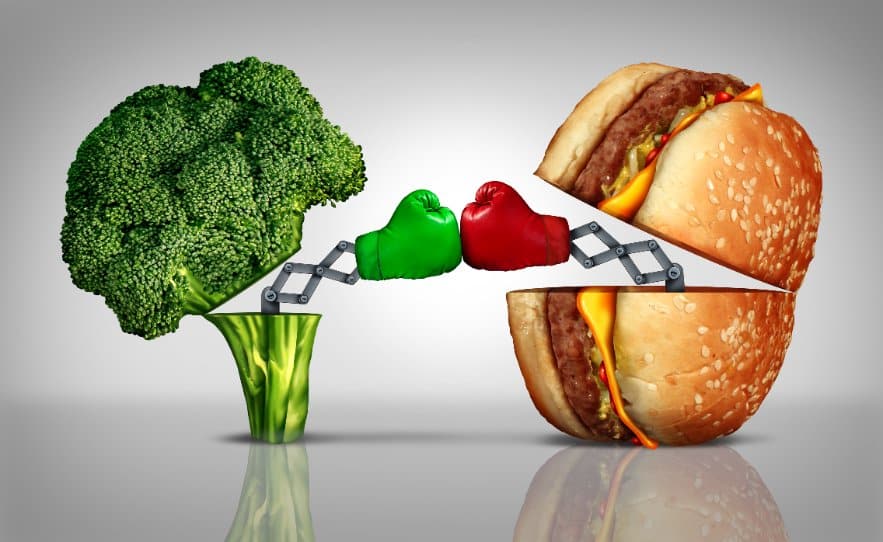By John Salak —
People suffering from depression have long tried to eat their way out of trouble. This might mean diving into the pint of Haggen-Dazs vanilla bean ice cream, wolfing down a half dozen chocolate glazed doughnuts or snorting a bag of potato chips, among other salty or sweet treats. It may have seemed like a good idea at the time, but ultimately these munch-out sessions usually wind up increasing waistlines rather than reducing anxiety and depression levels.
Ultimately, wading into questionably healthy snacks is probably never going to be a feel-good recipe for battling depression for the approximately 5 percent of American adults who suffer from it, according to the National Center For Health Statistics.
Newly released research, however, reports that certain other foods may just help keep the blues at bay.
One study by the University of Reading in Britain reports that high doses of Vitamin B tablets have been shown to reduce feelings of anxiety and depression. Researchers, in fact, found that young adults felt better after taking supplements every day for a month, which underscores the potential impact supplements can have on preventing or treating mood disorders.
“The functioning of the brain relies on a delicate balance between the excitatory neurons that carry information around and inhibitory ones, which prevent runaway activity,” explained Dr. David Field, the study’s lead author. “Vitamin B6 helps the body produce a specific chemical messenger that inhibits impulses in the brain, and our study links this calming effect with reduced anxiety among the participants.”
Previous studies have shown that multivitamins or marmite, a yeast extract, can reduce stress levels, yet little research has been done on which particular vitamins have this beneficial effect.
Many foods, such as tuna and chickpeas, among others, contain Vitamin B6, but Field was quick to point out that the supplements used in the research contained substantially high dosages of the vitamin—up to 50 times the recommended daily allowed—than are available through general food consumption.
“The high doses used in this trial suggest that supplements would be necessary to have a positive effect on mood,” Field added, noting the medication still has a greater impact on controlling depression than supplements.
“However, nutrition-based interventions produce far fewer unpleasant side effects than drugs, and so in the future people might prefer them as an intervention,” he added.
Yet another British study drove home the potential power of targeted foods to battle depression when it reported that people who frequently eat fruit have a higher level of mental wellbeing and are less likely to be depressed than those who do not.
Aston University went on to note that people who eat savory snacks that are low in nutrition such as potato chips are likely to be more anxious than others. The findings were based on a survey of more than 400 adults from across Britain.
After taking demographic and lifestyle factors such as age, general health and exercise into account, the research found that both nutrient-rich fruit and nutrient-poor savory snacks appeared to be linked to psychological health. The survey also indicated that those indulging in unhealthy snacks experienced a relatively higher number of daily cognitive failures or mental lapses than others.
“Very little is known about how diet may affect mental health and wellbeing, and while we did not directly examine causality here, our findings could suggest that frequent snacking on nutrient-poor savory foods may increase everyday mental lapses, which in turn reduces psychological health,” reported, lead author Nicola-Jayne Tuck, a Ph.D. student.
An interesting side note, vegetable intake appeared to have little to no effect on mental wellbeing, which may indicate food preparation is a factor.
“Both fruit and vegetables are rich in antioxidants, fiber and essential micronutrients which promote optimal brain function, but these nutrients can be lost during cooking. As we are more likely to eat fruit raw, this could potentially explain its stronger influence on our psychological health,” Tuck theorized.
“It is possible that changing what we snack on could be a really simple and easy way to improve our mental wellbeing, she added. “Overall, it’s definitely worth trying to get into the habit of reaching for the fruit bowl.”













